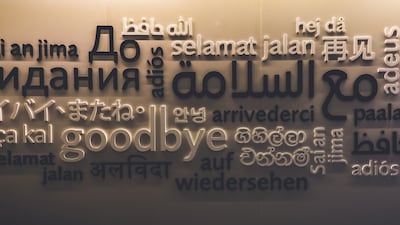Yesterday was International Mother Language Day. It’s an annual observance of the diversity in languages and cultures celebrated around the world. Although this holiday – announced by Unesco in 1999 – usually flies under the radar, it is immensely significant.
The many different languages spoken by separate communities across the world reflect how history has shaped the way we think and communicate today. Our mother languages, which we learn in childhood, connect us to the past. In that sense, language is part of our heritage. Our languages are also interwoven with our innermost feelings.
In a country such as the UAE, where so many languages are spoken and where English is the lingua franca, it can sometimes be hard, especially for young people, to maintain fluency in their native tongue. This day serves as a reminder that we ought to make a conscious effort to protect our own languages.

